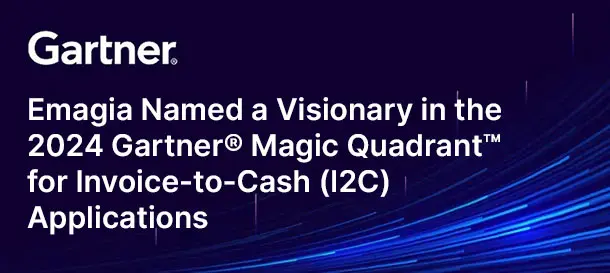Efficiently managing accounts receivable (AR) disputes is a crucial factor for finance leaders aiming to maintain healthy cash flow, reduce Days Sales Outstanding (DSO), and strengthen customer relationships. Implementing best practices for streamlining dispute resolution in AR ensures timely cash recovery, reduces operational bottlenecks, and leverages cutting-edge technologies like AI, predictive analytics, and workflow automation.
Understanding AR Disputes and Their Impact
Customer payment disputes often arise due to invoice discrepancies, incorrect billing, delayed approvals, or service-related issues. Left unresolved, these disputes can delay cash inflows, increase DSO, and negatively affect financial forecasting. Recognizing common dispute types and analyzing their patterns are the first steps toward effective management.
Finance teams must categorize disputes by type, urgency, and monetary impact. This helps prioritize resolution efforts and ensures that high-value or high-risk disputes receive immediate attention. Understanding these nuances also provides insights into process inefficiencies that may cause recurring disputes.
AI-Powered Dispute Detection
Artificial Intelligence (AI) has revolutionized the way organizations detect potential AR disputes. AI-powered dispute detection uses machine learning algorithms to analyze historical payment data, transaction patterns, and anomalies. By identifying discrepancies automatically, finance teams can address disputes before they escalate.
For instance, AI can flag invoices with unusual payment patterns or detect inconsistencies between purchase orders and invoice amounts. This proactive detection reduces manual effort and accelerates the overall dispute resolution process, improving cash flow predictability.
Automated Dispute Management
Automated dispute management streamlines the workflow by assigning dispute cases to the appropriate team members, prioritizing them based on risk, and tracking resolution progress. Automation ensures consistency, reduces human error, and enforces adherence to company policies.
Automation tools can also generate real-time dashboards, providing finance leaders with complete visibility into open disputes, aging disputes, and resolution trends. This transparency allows better decision-making and quicker response times.
Dispute Workflow Automation
Standardizing dispute workflow automation ensures that every case follows a predefined resolution path. Automatic alerts, reminders, and escalation protocols minimize delays and keep the process transparent. Teams can focus on complex disputes while routine cases are resolved efficiently through automation.
Workflow automation integrates seamlessly with ERP and CRM systems, allowing data to flow across departments without manual intervention. This reduces bottlenecks, ensures accurate record-keeping, and speeds up resolution timelines.
Root Cause Analysis Automation
Root cause analysis automation identifies recurring issues causing disputes. By analyzing data on invoice errors, payment delays, and customer communication gaps, organizations can implement preventive measures. This reduces the frequency of disputes and minimizes revenue leakage.
Automated root cause analysis leverages AI to highlight patterns and trends, enabling teams to proactively adjust processes. For example, if late approvals consistently trigger disputes, automated alerts can prompt earlier review and prevent future cases.
Predictive Analytics in AR
Predictive analytics helps finance leaders anticipate potential disputes and their impact on cash flow. By leveraging historical data, predictive models can forecast disputed amounts, expected resolution times, and potential DSO impact. This allows proactive planning and improved working capital management.
Finance teams can use predictive insights to allocate resources efficiently, prioritize high-risk accounts, and prevent cash flow disruptions. Integrating predictive analytics with AR automation systems ensures continuous monitoring and timely alerts for emerging disputes.
Invoice Validation Automation
Invoice validation automation ensures that invoices are accurate and compliant before they are sent to customers. AI-powered validation systems check for errors, inconsistencies, and missing information, reducing the likelihood of disputes arising from invoice discrepancies.
Automation in invoice validation accelerates billing cycles, improves accuracy, and minimizes manual workload. Finance teams can focus on strategic tasks rather than spending excessive time on routine checks and corrections.
Document Matching AI
Document matching AI automatically reconciles invoices, purchase orders, and remittance advice. This ensures that all financial documents align accurately, reducing errors that could lead to disputes. AI algorithms can detect mismatches, duplicates, or missing documents instantly, facilitating faster resolution.
By implementing document matching AI, organizations improve operational efficiency, reduce manual intervention, and maintain a clear audit trail. Teams gain confidence in the accuracy of financial data, enabling better reporting and compliance.
Customer Communication Automation
Effective communication is vital for resolving customer payment disputes. Customer communication automation enables timely updates, reminders, and follow-ups through email, SMS, or portals. Automated messaging ensures consistency, reduces response time, and keeps customers informed about dispute status.
Automated systems can personalize communication based on dispute type, customer history, and account priority. This enhances customer experience, strengthens relationships, and minimizes repetitive inquiries to the AR team.
Sentiment Analysis for Disputes
Sentiment analysis leverages AI to evaluate customer tone and emotions during dispute interactions. By analyzing emails, messages, or calls, organizations can identify escalation risks, urgent disputes, and sensitive cases requiring human intervention.
This proactive approach allows teams to tailor responses, prioritize critical disputes, and maintain a positive relationship with the customer while accelerating resolution timelines.
Real-Time Dispute Tracking
Real-time dispute tracking provides instant visibility into dispute status, assignments, and pending actions. Finance leaders can monitor all ongoing cases, identify bottlenecks, and ensure accountability at every step.
Integrating real-time tracking with AR dashboards allows teams to view metrics such as resolution time, case volume, and dispute types. This data-driven approach improves process transparency and enables continuous optimization.
Self-Service Portals for Disputes
Self-service dispute portals empower customers to submit, track, and update their cases without relying on direct support. This reduces manual workload on AR teams, improves efficiency, and enhances customer satisfaction.
Portals often include automated status updates, document uploads, and guided dispute submission forms. Combining self-service portals with AI ensures that disputes are categorized, prioritized, and routed correctly from the start.
Case Prioritization AI
Case prioritization AI analyzes the financial impact, dispute type, customer importance, and risk factors to assign priority levels automatically. This ensures high-risk or high-value disputes are addressed promptly, reducing potential revenue loss.
Automated prioritization enables AR teams to focus on disputes that have the most significant impact on cash flow while routine or low-risk cases follow standard resolution paths.
Machine Learning Dispute Resolution
Machine learning models improve dispute resolution by learning from historical patterns, outcomes, and response strategies. Over time, AI suggests optimal actions for similar cases, accelerating the resolution process.
ML-driven resolution reduces human error, standardizes decisions, and ensures faster cash recovery. By continuously learning, the system adapts to new dispute scenarios and evolving customer behaviors.
Remittance Data Extraction AI
AI-powered remittance data extraction automates the identification and processing of payment information from various formats such as PDFs, emails, or EDI files. This minimizes manual data entry, reduces errors, and speeds up payment matching.
Accurate remittance data ensures that disputes caused by missing or mismatched payments are quickly identified, allowing finance teams to address cases proactively and reduce delayed cash inflows.
Continuous Process Improvement
Implementing continuous process improvement in dispute resolution involves monitoring KPIs, analyzing trends, and updating workflows. By leveraging analytics, automation, and AI insights, organizations can refine procedures, reduce cycle times, and prevent recurring disputes.
Finance teams should regularly review metrics such as average resolution time, dispute volume, and resolution success rates to implement actionable improvements and maintain operational excellence.
Fraud Detection in AR Disputes
Fraud detection in AR disputes leverages AI algorithms to identify suspicious patterns, duplicate claims, and potential fraudulent activity. Early detection helps prevent revenue leakage and protects the organization from financial loss.
Integrating fraud detection with dispute workflows allows teams to flag high-risk cases, automatically route them for review, and implement preventive controls without slowing down legitimate dispute resolution.
Exception Handling Automation
Automated exception handling streamlines the resolution of atypical cases that fall outside standard processes. AI can identify anomalies, classify the exception type, and suggest corrective actions for AR teams.
This reduces human error, accelerates resolution, and ensures that exceptions are addressed systematically rather than ad hoc, improving overall process efficiency.
Customizable Dispute Workflows
Every organization has unique dispute resolution requirements. Customizable dispute workflows allow finance teams to configure routing rules, approval hierarchies, and escalation paths to match business needs.
Combined with AI, these workflows can dynamically adjust based on case priority, customer type, or dispute complexity, ensuring consistent and rapid resolution across all cases.
ERP Integration for Dispute Resolution
Integrating dispute management with ERP systems enables seamless data flow between accounting, finance, and AR modules. This ensures accurate ledger updates, real-time visibility, and synchronized reporting.
ERP integration reduces manual reconciliation, prevents duplicate entries, and provides a single source of truth for all dispute-related information, enhancing operational control and financial accuracy.
Transparent Dispute Resolution
Transparency in dispute resolution builds trust with customers and internal stakeholders. AR dashboards and real-time tracking provide visibility into case status, pending actions, and resolution timelines.
Transparency also supports audit readiness, regulatory compliance, and informed decision-making by finance leaders, ultimately reducing dispute recurrence and operational risks.
Resolution Time Reduction
Optimizing workflows, leveraging AI, and automating routine tasks significantly reduce dispute resolution time. Faster resolution improves cash flow, enhances customer satisfaction, and allows finance teams to focus on strategic initiatives.
Key strategies include predictive analytics for prioritization, automated notifications, and integrated case management, all working together to minimize delays and accelerate dispute closure.
How Emagia Helps Simplify AR Dispute Resolution
Emagia provides an AI-powered AR automation platform designed to streamline dispute resolution and enhance operational efficiency. With intelligent workflows, automated matching, and predictive insights, Emagia helps organizations handle disputes faster and more accurately.
The platform includes customizable dashboards, real-time alerts, automated communication tools, and ERP integration, ensuring finance teams have complete visibility and control over all dispute-related processes.
By reducing manual workload, improving accuracy, and proactively preventing disputes, Emagia enables organizations to optimize cash flow, enhance compliance, and improve customer satisfaction.
FAQs on Streamlining Dispute Resolution in AR
What is the most effective way to resolve customer payment disputes quickly?
Leveraging AI-powered dispute detection, automated workflows, and real-time tracking ensures that disputes are prioritized, routed, and resolved efficiently, reducing delays and manual errors.
How does AI help in AR dispute resolution?
AI assists by detecting anomalies, predicting resolution paths, automating repetitive tasks, and providing actionable insights based on historical data, enabling faster and more accurate resolutions.
Can AR dispute management be integrated with ERP systems?
Yes, integrating AR dispute workflows with ERP systems ensures seamless data synchronization, accurate ledger updates, and real-time visibility into dispute cases across all finance modules.
What role do self-service portals play in dispute management?
Self-service portals empower customers to submit and track disputes, upload supporting documents, and receive automated updates, reducing manual workload for AR teams while improving customer satisfaction.
How can organizations prevent recurring disputes?
By analyzing root causes, implementing predictive analytics, standardizing workflows, and providing transparent communication, organizations can proactively address issues and prevent repeated disputes.
How does Emagia improve dispute resolution efficiency?
Emagia automates matching, workflow routing, communication, and reporting, leveraging AI to provide actionable insights and accelerate dispute resolution, ultimately enhancing cash flow and reducing manual effort.
What are the key metrics to monitor in dispute resolution?
Resolution time, case volume, dispute types, root cause analysis, and customer satisfaction are critical KPIs to track for continuous process improvement in AR dispute management.



